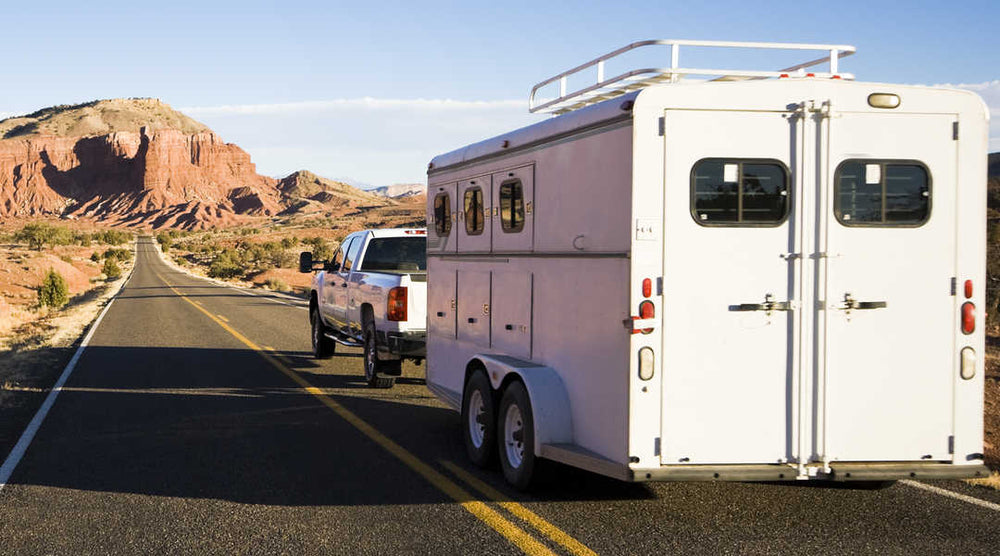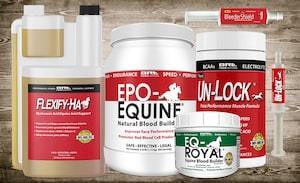
After so much time spent preparing your horse for that upcoming big barrel race or competition, it’s a shame to think about how something as seemingly minor as gastric ulcers can sideline your plans. Gastric ulcers can spell trouble for any racehorse, barrel racer or other competition horse.
Understanding Gastric Ulcers
Ulcers can dramatically affect your horse’s performance. Not only can they cause weight loss and increase your horse’s risk of colic, but ulcers are also painful. Because of the discomfort they cause, ulcers can result in a poor attitude and lackluster performance in your horse. You may notice that he seems to regress in his training and performance, and though you may have been winning in races or competitions, your horse may start to fall behind other competitors.
Unfortunately, many of the situations that competition horses experience can contribute to creating ulcers. Lots of traveling and competing can increase stress. Spending time in a stall without access to forage can cause issues, and large meals of grain can also contribute to ulcer development.
Because treating ulcers can be a long and expensive process, it’s better to prevent them. The following five tips can help you to keep your horse ulcer-free.
1. Minimize Stress. Any steps you can take to minimize your horse’s stress, particularly when at competitions, will help to reduce the chance that he will develop ulcers. Many horses thrive on schedules, and you can create — and stick to — a schedule to help give your horse a sense of normalcy, even when you’re away from home.
There are many other techniques you can use, such as bringing along a companion animal for your horse and scheduling your races or competitions so that there’s plenty of downtime between them.
2. Focus on Trailer Training. Loading onto and riding in a trailer is a stress-inducing experience for many horses. If your horse is reluctant to load, then focus on trailer training to help him get more comfortable with the trailer. Going back to basics can make your horse more confident, and this will pay off every time you need to transport your horse.
3. Keep Forage Available. Forage can help to buffer the lining of your horse’s stomach from stomach acid, aiding in ulcer prevention. If possible, keep forage constantly available. Using a slow-feed hay net can make hay last longer, extending the benefits that each meal offers. You may also find that feeding smaller, more frequent meals of hay throughout the day works well.
4. Maximize Turnout Time. This tip may be the most difficult to implement, especially if you board your horses. However, time spent in turnout can reduce stress, provide mental stimulation and even allow your horse to graze naturally, keeping forage moving through his digestive system.
5. Use an Ulcer Preventive. For horses prone to ulcers, or that will be in stressful situations or environments, feeding an ulcer preventive can offer additional support. There are many options available, and it may be best to discuss your horse’s individual situation with your vet to identify the right preventive product.
Don’t forget that BRL Equine Nutrition offers a variety of products that can support your horse’s health, from preventing tying up to supercharging your horse’s endurance and recovery. Learn more about BRL Equine Nutrition products today.
Top trainers, owners and competitors rely on BRL Equine products to help their horses perform at their very best. You can get the same great results! Our all-natural equine nutritional supplements really work... guaranteed or your money back!





Also in Horse Tips and More
Top 10 Ways to Show Your Horse You’re Thankful For Him
November 01, 2021
View full article →
5 Ways to Prepare Your Barn For Summer
May 03, 2021
View full article →
Your New Spring Horse Health Checklist
March 12, 2021
View full article →